How is Reflux Diagnosed?
posted: Feb. 07, 2022.
Do you have frequent heartburn or often feel like there's a lump in your throat? You might have reflux, a common problem that occurs when stomach acid flows backward into your esophagus. Your Carmel, IN, otolaryngologists at Northside ENT, Dr. Robert Youkilis, Dr. Jeffrey Beach, and Dr. Seth Bruggers, can perform reflux testing to determine if reflux or another issue is responsible for your symptoms.
What causes reflux?
Reflux can occur if the sphincter between your esophagus and stomach is weak, too relaxed, or doesn't close completely. The sphincter is a muscle that acts like a valve to separate the stomach and esophagus. Normally, the sphincter closes as soon as food travels from your esophagus to your stomach. If this doesn't happen, acid can escape your stomach and irritate the sensitive lining of the esophagus. This problem, known as reflux, causes a variety of symptoms, including:
- Heartburn
- Chest pain
- Nausea
- Trouble swallowing
- Bad taste in your mouth
- Burping
- Hoarse voice
- Cough
- Sore throat
If you have these symptoms more than twice a week, you may be diagnosed with gastroesophageal reflux disorder (GERD). GERD affects about 20% of Americans, according to the National Institute of Diabetes and Digestive and Kidney Diseases.
How does your doctor diagnose reflux?
During your visit to the otolaryngologist in Carmel, IN, your doctor may recommend reflux testing. One or more of these tests may be needed to diagnose your condition:
- Barium Swallow Radiograph: Before this test, you'll drink barium, a chalky, white liquid that can be clearly seen on X-rays. The test shows how liquid enters your stomach from your esophagus. If some of the liquid pools around the esophagus, you might have reflux.
- Upper Endoscopy: During an upper endoscopy, your doctor passes a thin, flexible scope into your throat, then passes it through your throat and esophagus and into your stomach. The scope contains a light and a miniature camera that transmits images to a digital screen. If you have GERD, your doctor may be able to see changes in the lining of your esophagus. He may also remove a tiny tissue sample during this test.
- Esophageal Manometry: Esophageal manometry evaluates how well the esophageal sphincter works. A narrow tube is passed into your stomach through your nose. This test helps your doctor tell if your sphincter closes properly and also evaluates how quickly food passes through your esophagus and into your stomach.
Concerned that you may have reflux? Call your otolaryngologists in Carmel, IN, Dr. Youkilis, Dr. Beach, and Dr. Bruggers of Northside ENT, at (317) 844-5656 to schedule reflux testing.

